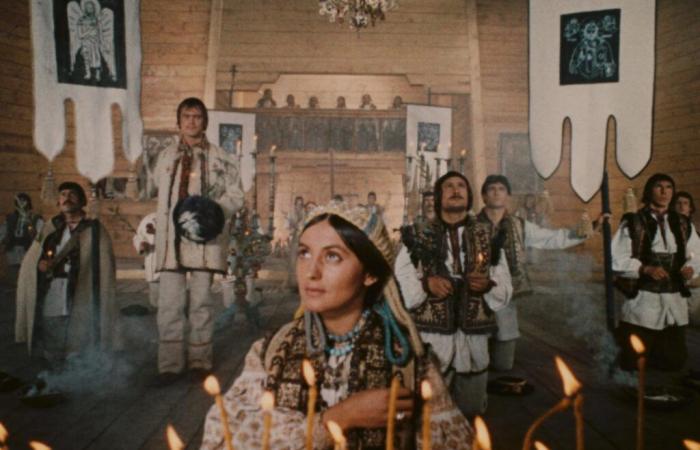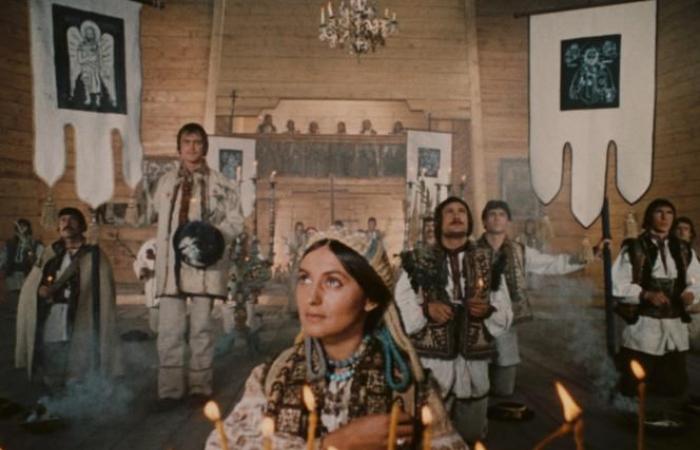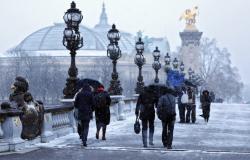It is 9 a.m. in Kryvorivnia, a village of 1,500 souls in the Ukrainian Carpathians, about fifty kilometers from the Romanian border. In the small wooden church which overlooks it, priest Ivan Rybarouk opens a liturgy “for the freedom and dignity of [son] people “. He established this morning ritual more than a thousand mornings ago, when Russia launched its invasion, on February 24, 2022. He lists the first names of those from the region who died in combat: “Youri, Stepan, Iryna, Vassyl, Rouslan, Ganna…” The list is long, and he sometimes loses his breath.
However, sixty years ago, Kryvorivnia saw much happier days. The women in colorful scarves who listen to the priest, kids then, remember well the numerous cars arriving suddenly in May 1963 in this valley protected from the winds and urban bustle by the mountains with, in the lead, a man very agitated bearded man. Thus begins the epic filming of Fire horses, the film which revealed the director Sergei Paradjanov (1924-1990). The first French screening of this film in a restored version will take place on Saturday, November 23, at the Christine Cinéma Club, in Paris, during the Un weekend à l’Est festival, which lasts until Saturday, November 30.
In 1965, at the release of Fire horses, the whole world discovers the name of Sergei Paradjanov. The film received around fifty awards on all continents. Its creator cannot work in the USSR or leave the country. “Give me a one-way ticket instead”he laughs, invited to several festivals. When Charles de Gaulle went to kyiv in 1966, his wife, Yvonne, wanted to meet this author whose film had recently been shown in France. True to his way of impressing his guests, Paradjanov cuts off the electricity throughout the building on Victory Square in kyiv and puts candles on each floor. Mme de Gaulle climbs six floors on foot.
Ukrainian Romeo and Juliet
Today, it is almost impossible to disentangle myth from reality on this “land of the Houtsoules forgotten by God and by people”, as presented in the film. One thing is certain, according to Ivan Zelentchouk, curator of the Verkhovyna Natural Park and expert on Houtsoulia, this mysterious mountain region: “On a holiday, two hundred years ago, a man from the Paliychuk family was stabbed by his rival from the Guteniuk family in front of the church” and their children, Ivan and Maritchka, loved each other instead of taking revenge. In the old village cemetery, on the dozens of crosses damaged by time, we can still read the name of Gouteniouk. As for the Paliytchouks, we no longer find any trace of them.
You have 72.97% of this article left to read. The rest is reserved for subscribers.







